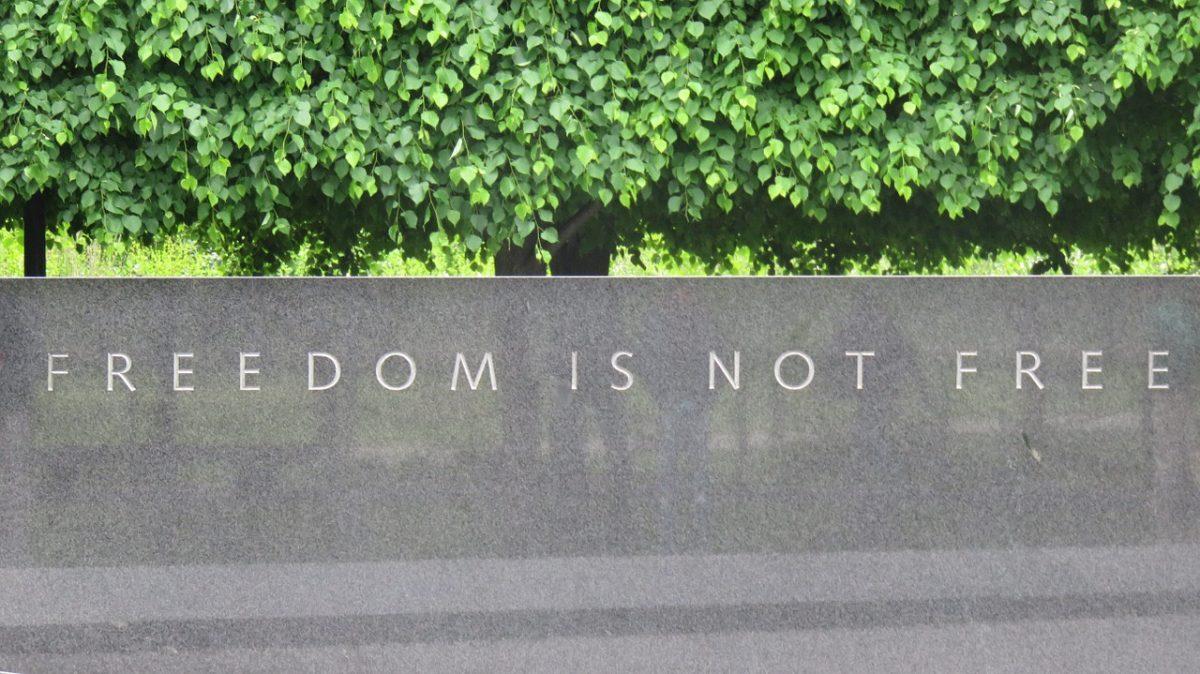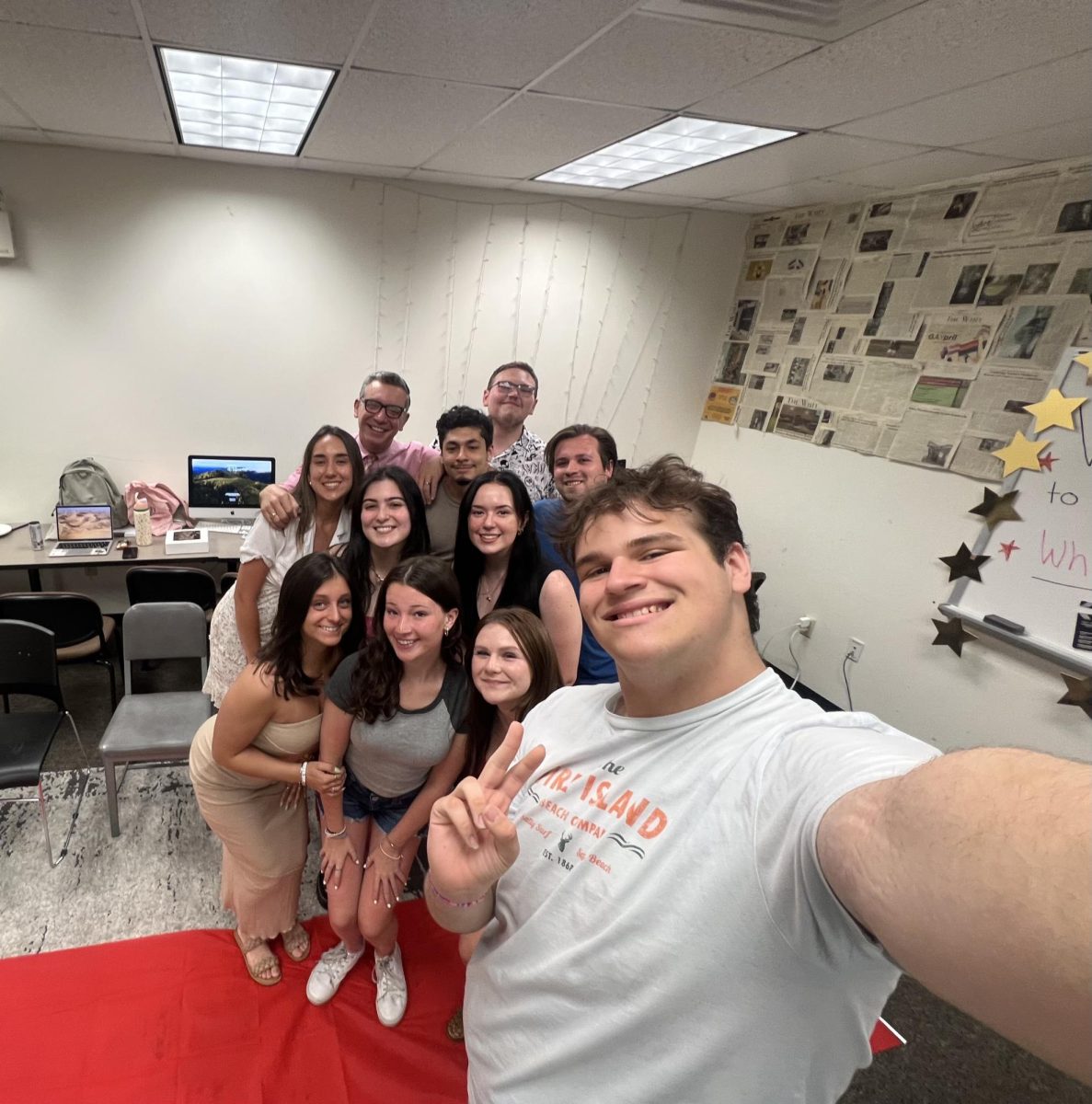The Vietnam War lasted over a decade, from 1965 to 1975. Today, this means the anti-war protests associated with the war occurred exactly half a century ago. The protests were and are pivotal. They can’t be understood fully by those not alive at the time, but it’s still important nonetheless. America in the ‘60s was divided between peace/non-violence and racism.
The protests played a huge part of the movement against the war. After all, actions speak louder than words.
Northern Vietnam was attempting to reunify Vietnam, while the United States’ involvement in the war was solely politically motivated. The U.S. considered its involvement in the war as an attempt to prevent a control of communism by south Vietnam.
American protesters stormed the Pentagon on Oct. 21, 1967, waving signs, burning draft cards and singing. Fast forward to ‘68 and some of the anti-war signs read “Stop the War,” “Bring the GIs Home Now,” and “We Mourn Our Soldiers, They Are Dying in Vain.”
As America’s military presence grew, so did the battle for peace.
Many assume that left-wing people and hippies were behind the entire movement, but a significant amount of people in the country opposed it. People felt the U.S. had no chance of winning and, thus, it was important for the country to leave Vietnam as soon as possible.
This led to the “Vietnam Veterans Against the War” nonprofit organization and corporation. The corporation was set into place in order to oppose the war. Even though the corporation was founded in 1967, the war protests continued into ‘68 and onward.
Democratic politician Eugene McCarthy, who ran in the 1968 presidential election against incumbent U.S. President Lyndon B. Johnson, was supportive of the movement. He was quoted as saying Johnson’s administration had no limit set as to the price it is willing to pay for military victory.
He promised reporters that if he won, he would withdraw troops from Vietnam and make an honest effort in making peace with the north.
Despite losing the election, McCarthy was still the protestors’ dream. He was respected for his honesty. The late President John F. Kennedy increased U.S. military aid into South Vietnam, refusing to withdraw from Vietnam. Kennedy feared a withdrawal would mean a collapse of both Southern Vietnam and Southeast Asia.
Some historians believe that just prior to his assassination, Kennedy ordered a hit on Vietnamese leader Ngo Dinh Diem. After Johnson took Kennedy’s place, he was stern and egotistical, focusing mostly on not losing the war.
This mindset of his was in spite of the hundreds of Americans at that time that were fighting for American freedom and anti-violence. Johnson was the one who chose to escalate the conflict.
By 1968, an estimated 548,000 American troops were staged in Vietnam, while roughly 30,000 Americans were killed there as a result.
The war seemed like it would never end.
In January of ‘68, the North [Vietnam] joined forces with the Vietcong for a series of attacks against the South. The attacks named the “Tet Offensive [due to the lunar year],” were vital in targeting Southern civilians.
In addition to that, the attacks were pivotal in attempting to weaken the support of the US being in favor of a Vietnam War. Back in America, everything was spiraling out of control. Protesters were storming through draft offices, and more than a fair share of anti-war protests were turning violent.
The North eventually came out victorious. American armed forces withdrew themselves from Indochina, North Vietnam’s communist powers defeated the South, thus, hereby the two sides joining together.
Reunification is the moral of the story.
Anti-war Americans protested for the purpose of removing troops to safety; back home where they belong. No violence, no bloodshed. Meanwhile, Northern Vietnam’s government and the Vietcong were fighting to bring reunification to their own country.
According to a 1968 Milwaukee Journal survey, they found that 75 percent of students supported organized protest as a “legitimate means of expressing student grievances.”
War or not, effective communication is the most important factor in trying to resolve any type of conflict.
For questions/comments about this column, email [email protected] or tweet @TheWhitOnline.

























































































































































!["Working with [Dr. Lynch] is always a learning experience for me. She is a treasure,” said Thomas. - Staff Writer / Kacie Scibilia](https://thewhitonline.com/wp-content/uploads/2025/04/choir-1-1200x694.jpg)










































